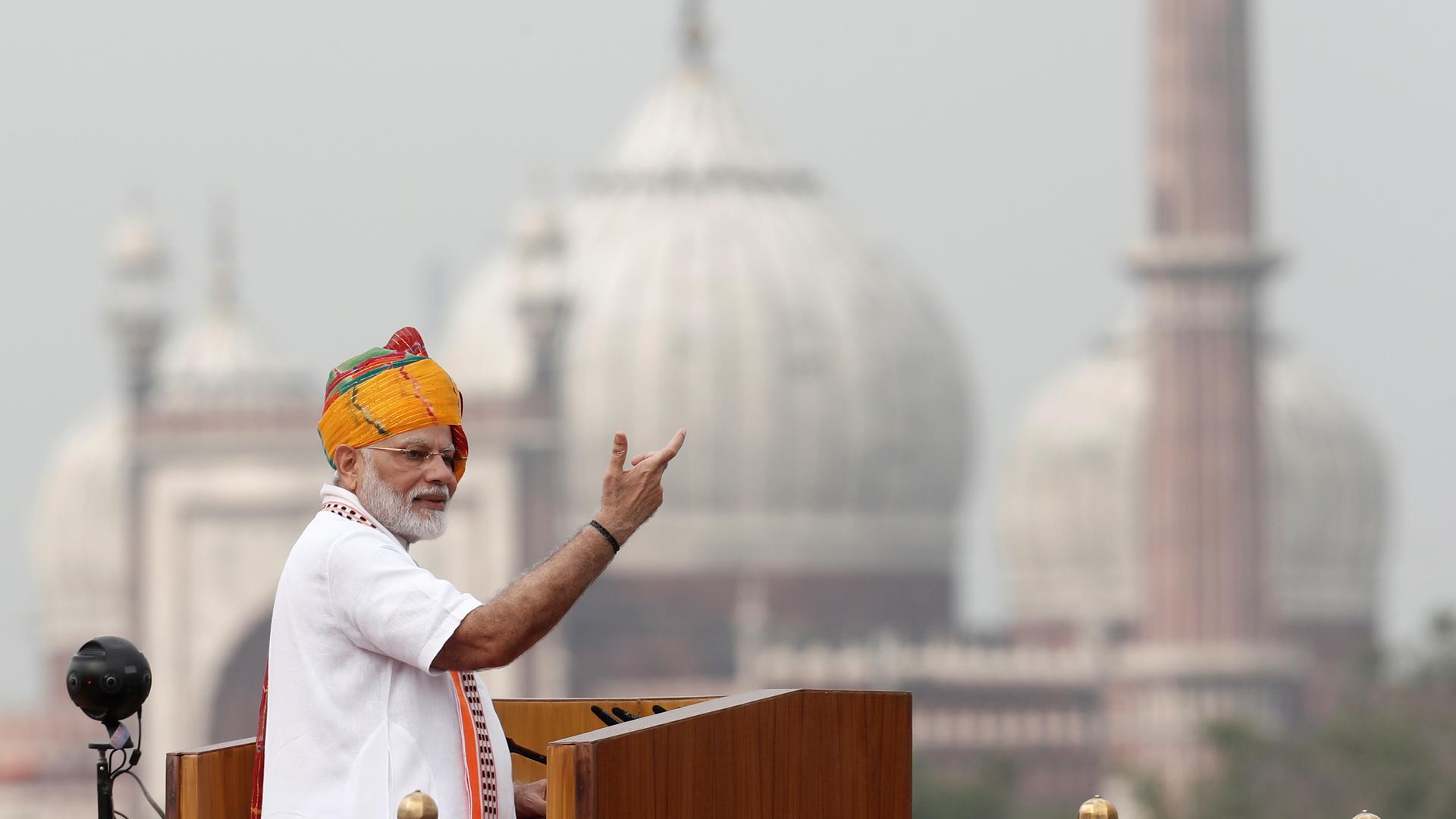India has managed to build a powerful, culturally acceptable, image abroad over the last half-century. Is Prime Minister Narendra Modi inadvertently tearing that down?
An esteemed Indian diplomat-turned-politician, Shashi Tharoor, wrote in 2012 that, “India’s civilisational ethos has been an immeasurable asset for [India] in the world. This is why we must not allow the spectre of religious opportunism, or political opportunism, to undermine it if we wish to assume true leadership in the world.”
Truer words could not have been written. Given the acquittals of rapists of little Muslim girls, the public lynching of Muslims, and recently the traumatising and unconstitutional revocation of autonomy for Kashmiris by the Hindu-nationalist Bharatiya Janata Party (BJP)-led government, has India lost its way on the path to authentic world leadership?
Power, they say, is the ability to get one to do something they won’t otherwise. If one analyses India’s path to world leadership from a power lens, the answer sheds more light on the world we live in rather than India’s trajectory to greatness. However, it will allow us to understand the brazenness with which the BJP has violated more than 11 United Nations Security Council resolutions and kept more than 10 million away from work and school, without being able to call loved ones, for a month.
According to Joseph Nye, “the soft power of a country rests primarily on three resources: its culture in places where it is attractive to others; its political value when it lives up to them at home and abroad; and its foreign politics when they are seen as legitimate and having moral authority.”
This is what Tharoor highlighted: India’s formidable soft power. With Bollywood and Tikka Masala taking the world by storm, India became more than a far-away curiosity. It became your doctor, your software engineer, your cool Netflix show host. That, along with yoga and Gandhian non-violent movements, India became potentially the greatest soft power after the US and Japan.
Almost at the same time, India’s ‘sticky power’ grew. Describing sticky power, Walter Mead gives the example of a carnivorous sundew plant: “it attracts its prey with a kind of soft power, a pleasing scent that lures insects toward its sap. But once the victim has touched the sap, it is stuck; it can’t get away.”
That is sticky power or economic power. The Indian economy is considered the third-largest in the world by purchasing power parity. Recently the United Arab Emirates awarded Prime Minister Narendra Modi its highest civilian honour, even as Kashmiris suffered. Unsurprising though, as the UAE’s exports to India surged by 37 percent to reach almost $30 billion in the last year alone.
Unfortunately, the BJP is busy translating India’s soft and sticky power into hard power. Indian economic influence landed India a plum Financial Action Task Force (FATF) membership which has been, according to Pakistani Prime Minister Imran Khan, leveraged to create economic pressure for an already cash-strapped Pakistan desperately trying to exit the FATF grey list and not end up on its dreaded blacklist.
With India snugly on the FATF panel, the BJP has chosen now to ‘correct a past mistake’ in Kashmir. On the other hand, velvet-gloved Priyanka Chopra-Jonas, a renowned Bollywood actor and a United Nations goodwill ambassador usually championing feminist causes—whose wedding was attended by Narendra Modi himself—did not flinch when the mic was yanked away from a Pakistani-American woman who asked her to clarify her apparent support for war.
With more than 700,000 soldiers stationed in the Kashmir Valley to thwart any protest, the Indian defence minister warned Pakistan (and the world) that the ‘No First Use’ nuclear policy could change ‘given the circumstances’.
Nuclear war is now a serious threat in South Asia. India’s attempts at hard power cannot get more dangerous.
The Narendra Modi-led BJP has overridden much of India’s goodwill earned over decades. The Hindutva ideology is alive and kicking, even if it is the one that murdered Mahatma Gandhi.
As a third-generation Pakistani myself, I miss the India I grew up with. The India that at least tolerated if not celebrated diversity, the India whose institutions were strong enough to protect constitutional rights as today’s Press Council of India defends Kashmir’s communication blackout, the India that knew better than to threaten nuclear war in its neighbourhood.
The India that—seemingly—had all the ingredients to become a world power. Today, I wonder whether that country ever existed in reality and not just on our cinema screens.
Author: Ravale Mohydin
Ravale Mohydin writes about media effects on society, public diplomacy and non conventional warfare. She is an alumna of Harvard University, the University of Pennsylvania and the Lahore University of Managament Sciences. She currently works at TRT World Research Centre.
Source










Discussion about this post